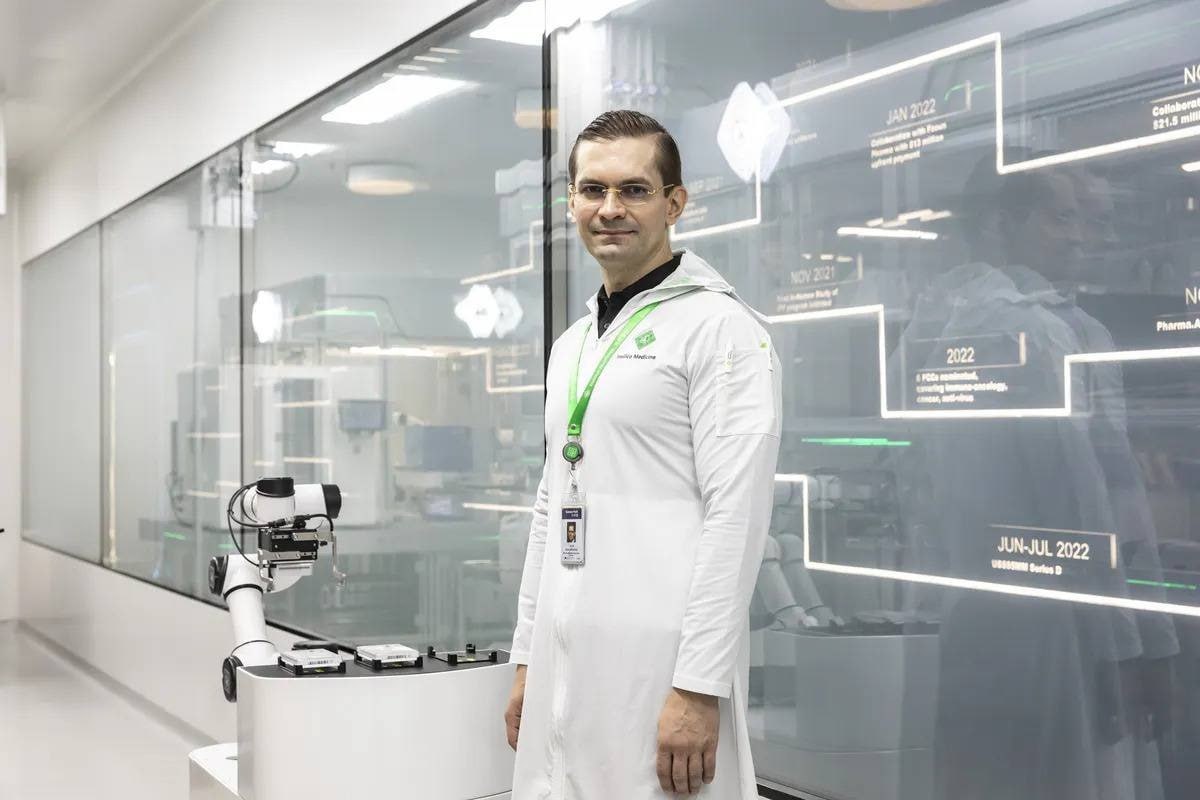The Next Frontier in Medicine
Imagine a world where your next prescription is not just approved by a doctor but invented by an algorithm. That future is rapidly approaching. According to Alex Zhavoronkov, CEO of Insilico Medicine, the first fully AI-designed drugs could be approved within the next five to six years, potentially reaching pharmacies by 2030. Insilico is at the forefront of this revolution, leveraging generative AI to accelerate drug discovery and development.
Breaking New Ground with INS018_055
Insilico’s flagship achievement is INS018_055, a novel small molecule inhibitor targeting idiopathic pulmonary fibrosis (IPF), a rare and fatal lung disease. This drug is the first to be entirely discovered and designed using AI, from target identification to molecular generation. Remarkably, the journey from concept to Phase I clinical trials took just 30 months and cost under $2 million—significantly faster and cheaper than traditional methods.
As of June 2023, INS018_055 has entered Phase II clinical trials in the U.S. and China, marking a significant milestone in AI-driven drug development.
The Power Behind the Platform
Insilico’s success is powered by its integrated AI platform, Pharma.AI, which comprises three core components:
- PandaOmics: Utilizes AI to identify and prioritize novel drug targets by analyzing vast datasets.
- Chemistry42: Employs generative AI to design new molecular structures with desired properties.
- InClinico: Predicts clinical trial outcomes to optimize study designs and improve success rates.
This end-to-end approach enables rapid and cost-effective drug discovery, with over 40 AI-designed drug candidates currently in development.
A Broader Industry Shift
Insilico is not alone in embracing AI for drug discovery. Companies like Exscientia and Insitro are also leveraging AI to streamline the development of new therapies. For instance, Exscientia has introduced several AI-designed drugs into clinical trials, highlighting the growing confidence in AI’s potential to revolutionize pharmaceuticals.

Moreover, major pharmaceutical companies are forming partnerships with AI firms to enhance their R&D capabilities. Germany’s Merck KGaA, for example, is collaborating with AI companies to expedite drug discovery processes.
Challenges and Considerations
While AI offers promising advancements, challenges remain. Ensuring the safety and efficacy of AI-designed drugs through rigorous clinical trials is paramount. Additionally, integrating AI into existing regulatory frameworks and addressing ethical considerations will be crucial as the technology becomes more prevalent.
Looking Ahead
The integration of AI into drug discovery heralds a new era in medicine, with the potential to deliver treatments faster and more efficiently than ever before. As AI-designed drugs like INS018_055 progress through clinical trials, the prospect of AI-generated medications becoming commonplace in pharmacies by 2030 seems increasingly plausible.
Stay informed on the latest developments in AI-driven drug discovery and the future of pharmaceuticals






